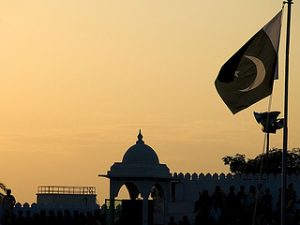Reuters reported on October 9 that Pakistan has blocked the popular social media app TikTok in the country. It quotes a statement from the Pakistan Telecommunications Authority (PTA) as saying that the decision was taken “[i]n view of number of complaints from different segments of the society against immoral and indecent content” on the app. With this decision, Pakistan joins arch-rival India which blocked TikTok, along with a number of other apps of Chinese origin, on national-security grounds late June this year. The Trump administration too tried to ban the app, along with WeChat, on August 7 if they were not sold to an American firm by ByteDance and Tencent, respectively, within 45 days. A federal judge has blocked the ban from coming to effect.
Over a short span of three months, the short-video app famous for carrying dance videos has unexpectedly come under geopolitical spotlight. While India and the United States’ push was explicitly tied to both countries’ tense relationships with China, Islamabad and Beijing have long considered each other “iron brothers.” Pakistan, arguably, is China’s closest military ally, as both countries seek each other’s help to maintain sustained strategic pressure on India. The China-Pakistan Economic Corridor (CPEC) is the flagship project of the Belt and Road Initiative (BRI).
What drove Pakistan to ban TikTok knowing well that China would not be thrilled with the decision is not clear. The public morality argument is superficially plausible given the country’s often quixotic attempts at regulating digital obscenity in the past. But the timing of the ban is interesting, coming as it does as China inches toward declaring the disputed autonomous province of Gilgit-Baltistan as full-fledged province. Pakistan has also supported China’s position on the Muslim-majority Xinjiang region. A bold move for a country that has often attempted to position itself as a leader in the Islamic world, it most recently did so at the United Nations General Assembly. China’s military pressure over India in the past five months has also taken heat off Pakistan. Since August last year, New Delhi had repeatedly signaled it could adopt a much tougher stance on Kashmir Pakistan administers. Finally, CPEC seems to be firmly back on track.
So why rock the boat now?
While China’s reaction to the ban in the coming days will be telling –China has called India’s “selective and discriminatory,” going against World Trade Organization rules – it is important to keep in mind that the ban takes place amid growing political turmoil in Pakistan. As things stand now, the opposition seeks to, simultaneously, bring the Imran Khan government to its knees as well as end the military’s meddling in domestic affairs. If the heat on Khan and his military backers continue, it is likely the Pakistan Army will have to draw support from the Sunni-Islamic clergy in that country – a powerful constituency that has often, though not always, worked hand in glove with it. That, in turn, would mean making some concessions to the clerics. Going after apparently immoral apps and websites would be an easy way by which the Khan-military “hybrid government” could placate powerful religious constituencies as it seeks to consolidate its base.
Keep in mind that the opposition alliance of 11 parties is being led by Fazlur Rehman, a firebrand Islamist cleric turned politician, not exactly known for his progressive views. By playing the morality card in front of the public, Khan could hope to deflect some of the heat off him from Rehman. Do also note that apparently Khan himself has taken the lead on the TikTok decision, directing “the telecoms authorities to make all efforts to block vulgar content,” as Reuters reported.
Of course, as the PTA itself has noted, the door is far from permanently shut on TikTok. If the app complies with its demands to remove content deemed improper by the regulator, it could be allowed to operate again. So, if China is keen to play along in this game of thrones in Pakistan on Khan and the military’s side, it could very well give them what they what they want so that they keep their grip on power. Or not. Much depends on conversations between Khan, the Pakistan Army and China that are surely on in the background, and the give-and-take at the end of the day.
Finally, there’s the possibility that by banning TikTok, Khan hopes to take an increasingly popular social-media app off the hands of the opposition as country-wide protests start this month. But again, it seems like an extremely risky move especially if he hasn’t secured Beijing’s blessings.































